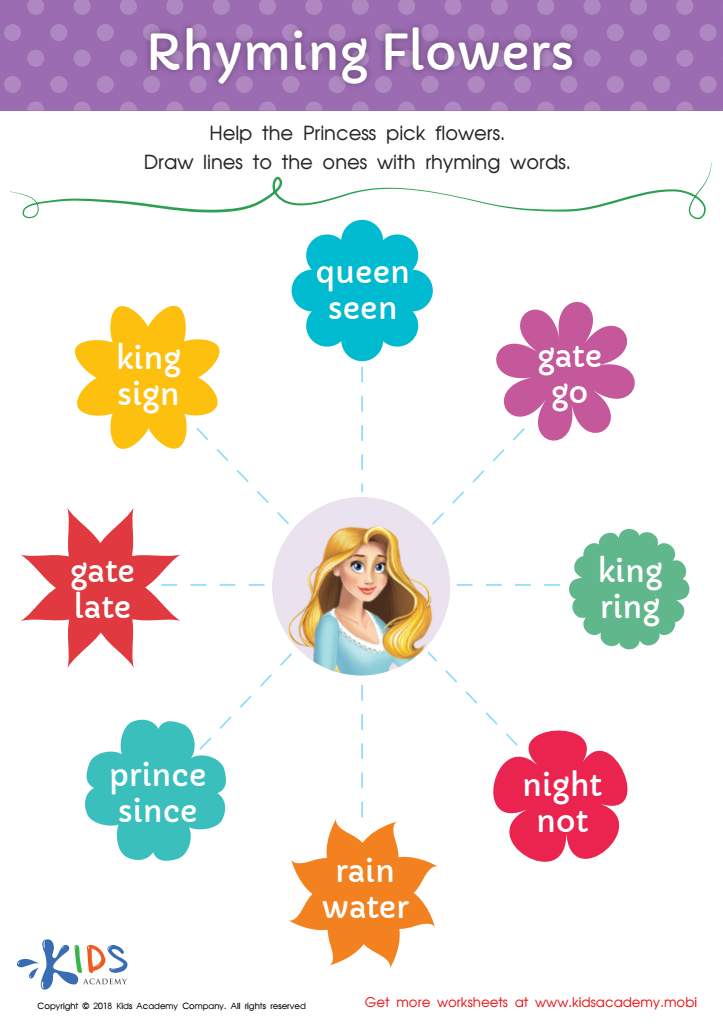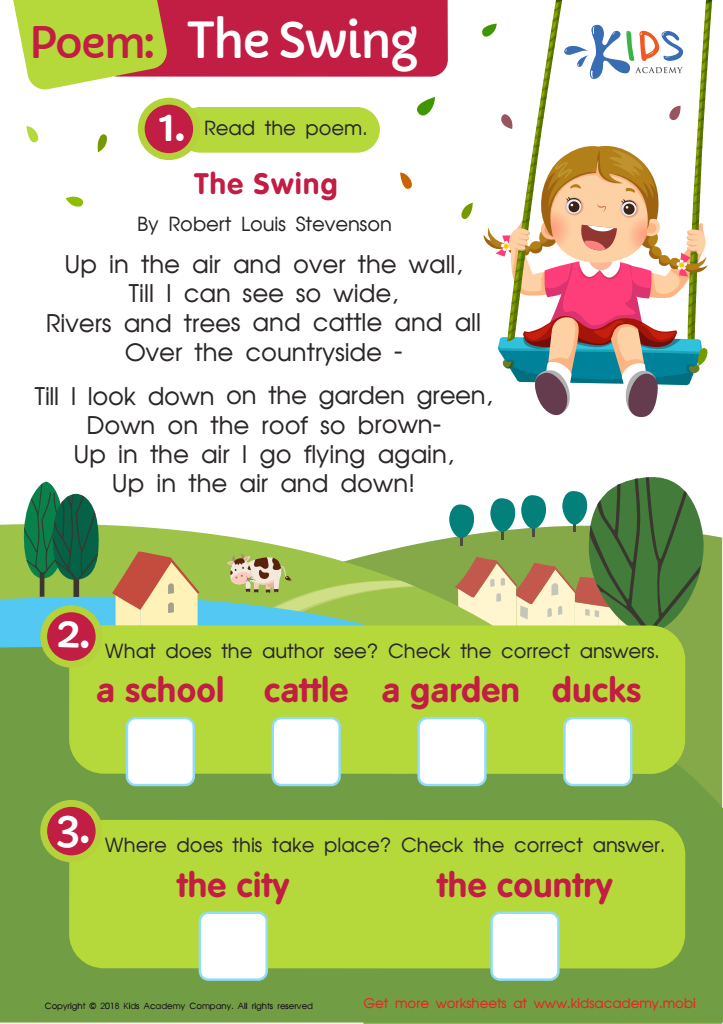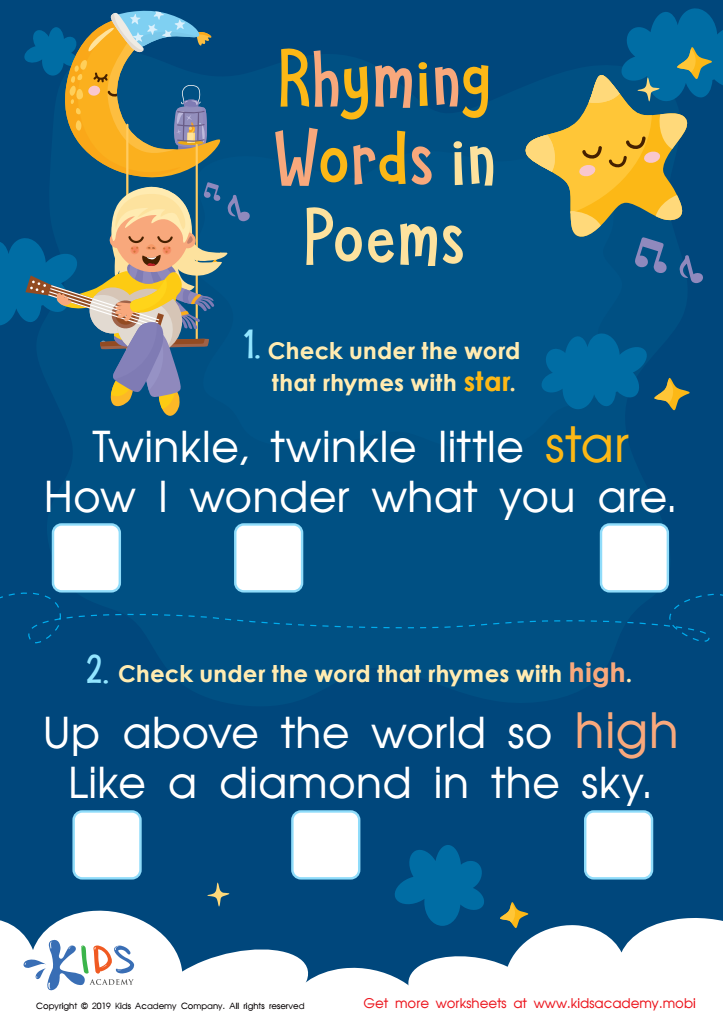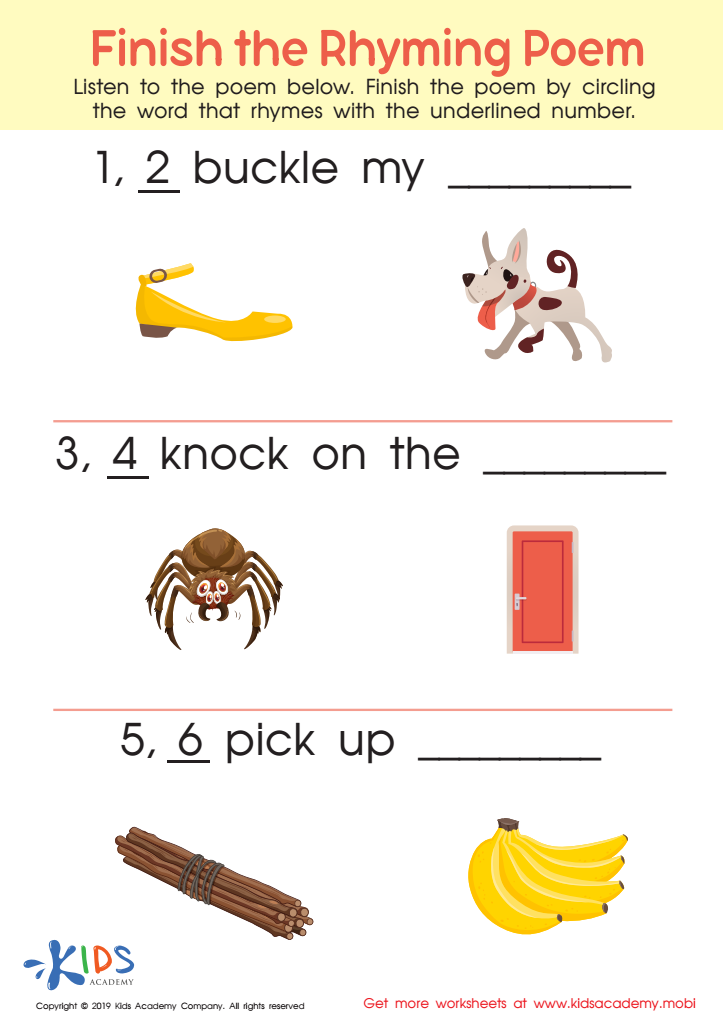Vocabulary enhancement Normal Rhyming Words Worksheets for Ages 3-9
7 filtered results
-
From - To
Enhance your child’s vocabulary with our engaging Vocabulary Enhancement Normal Rhyming Words Worksheets for ages 3-9! These carefully crafted, age-appropriate worksheets combine fun and education, helping young learners recognize and produce rhyming words through playful exercises. Perfect for preliterate toddlers and early readers alike, these resources foster phonemic awareness, a crucial early reading skill. Watch as kids enjoy matching and creating rhyming pairs, improving their language abilities effortlessly. Make learning exciting and effective with Kids Academy's beautifully illustrated, easy-to-use worksheets, and support your child's journey to becoming a confident reader today!


Rhyming Flowers Worksheet


Poem: The Swing Worksheet


Rhyming Words Rhyming Worksheet


First Words: Picture Rhymes Worksheet


Rhyming Words in Poems Worksheet


Finish Rhyming Poem Worksheet
Vocabulary enhancement through normal rhyming words is crucial for children ages 3-9, as it lays a strong foundation for literacy and communication skills. Rhyming words not only make language fun and engaging but also promote phonemic awareness, which is the ability to hear and manipulate sounds in words. This is a critical pre-reading skill that sets the stage for successful decoding and spelling later on.
When children are exposed to rhyming patterns, they begin to recognize sound similarities and differences, making it easier for them to predict and identify new words. This auditory discrimination is particularly important in developing reading fluency and comprehension. Rhyming also supports memory retention and recall, as the rhythmic and repetitive nature of rhyme helps children remember vocabulary more effectively.
Furthermore, rhyming can enhance creative and expressive language skills. Children often find joy in playing with rhyming words, sparking their imagination and encouraging them to experiment with language in song, poetry, and storytelling. This playful practice not only builds their vocabulary but also boosts their confidence in using language in varied contexts.
Parents and teachers should prioritize incorporating rhyming activities into daily interactions and curriculum to ensure children develop a robust vocabulary, laying the groundwork for future academic success and effective communication.
 Assign to My Students
Assign to My Students

















